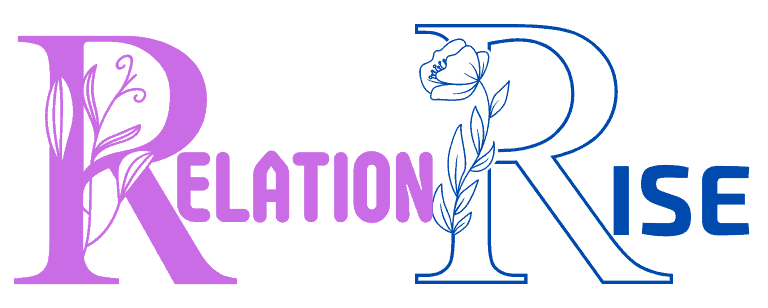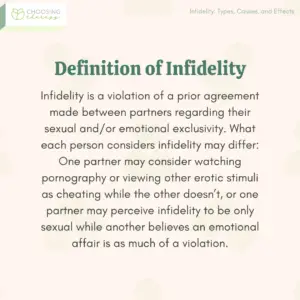What Does Redefine Relationships Mean
Redefine relationships means to redefine or modify the nature, dynamics, or expectations within a relationship. Relationships can be redefined to adapt, improve, or better meet the needs of those involved.
In this modern world, relationships have taken on a whole new meaning. Gone are the days when relationships were limited to traditional norms and expectations. Today, people are recognizing the need to redefine relationships to better fit their own unique circumstances and desires.
Whether it’s opening up the relationship to include multiple partners, transitioning from monogamy to polyamory, or finding alternative ways to connect and communicate, the idea of redefining relationships allows individuals to shape their own path to happiness and fulfillment. By breaking free from societal norms and constraints, people can create a relationship that truly reflects their authentic selves and meets their emotional and relational needs. Redefining relationships is about challenging the status quo and creating meaningful connections that resonate with our personal values and aspirations.
Redefining Relationships: A Modern Perspective
Discover a fresh perspective on relationships with “Redefining Relationships: A Modern Perspective. ” Gain insights into the meaning behind redefining relationships and navigate through the complexities of modern connections in a unique and relatable way.
Shifting Dynamics Of Relationships In The Digital Age
In this digital age, relationships have undergone a significant transformation. With the advent of technology and the widespread use of social media, the dynamics of relationships are constantly evolving. Traditional notions of love, commitment, and intimacy are being redefined in ways we couldn’t have imagined before. Gone are the days when relationships were confined to the boundaries of a physical space. Today, people can connect with each other from different corners of the world, forming connections that transcend geographical constraints. This shift in dynamics challenges the traditional norms and opens up a world of possibilities for individuals seeking meaningful relationships.
Embracing Non-traditional Relationship Models
The idea of a relationship has expanded beyond the traditional monogamous structure. More and more people are embracing non-traditional relationship models that cater to their unique needs and desires. Open relationships, polyamory, and ethical non-monogamy are just a few examples of alternative relationship styles gaining acceptance in today’s society. These unconventional relationships prioritize communication, consent, and respect among all involved parties. By embracing these non-traditional models, individuals can navigate their own paths to love and connection, breaking free from societal expectations and redefining what it means to be in a relationship.
Additionally, the rise of online dating platforms has provided a platform for people to explore different forms of relationships. From casual encounters to meaningful connections, these platforms offer a space where individuals can express their desires and find like-minded partners. The ability to connect with others who share similar interests, values, and lifestyles has revolutionized the dating scene, empowering individuals to be more intentional in their search for a compatible partner.
It’s important to note that redefining relationships doesn’t imply dismissing traditional models altogether. Rather, it’s about recognizing the diversity of human experiences and creating space for different types of relationships to thrive. Whether it’s a long-term monogamous relationship or a non-traditional arrangement, what matters most is that the individuals involved feel fulfilled, respected, and supported by their chosen relationship structure.
Cultivating Emotional Intimacy In Redefined Relationships
When it comes to redefining relationships, emotional intimacy is a vital aspect that can greatly contribute to the success and fulfillment of these non-traditional connections. While traditional relationships have historically focused on romantic and sexual bonds, redefined relationships open the doors to alternative forms of connection, emphasizing emotional depth, trust, and vulnerability. Cultivating emotional intimacy in these relationships is key to fostering deeper connections and ensuring a fulfilling and transformative journey together.
Nurturing Deeper Connections In Non-traditional Relationships
In redefined relationships, fostering deeper connections goes beyond physical attraction and surface-level interactions. These connections are built on nourishing emotional intimacy, allowing individuals to truly understand, support, and validate each other’s feelings, desires, and aspirations. To nurture such connections, it is essential to create an environment of openness, trust, and active engagement.
Nurturing deeper connections in redefined relationships can involve:
- Engaging in open and honest conversations about emotions, needs, and boundaries
- Investing time and effort to actively listen and empathize with one another
- Engaging in activities or rituals that foster emotional connection and promote shared experiences
- Supporting each other’s personal growth and celebrating individuality
- Developing rituals of connection that strengthen the emotional bond, such as practicing gratitude or engaging in regular check-ins
Importance Of Effective Communication In Redefined Relationships
“Communication is the key to any successful relationship.” This adage holds even greater significance in the realm of redefined relationships. Effective communication is the cornerstone of emotional intimacy, enabling partners to express their thoughts, emotions, and needs, while also actively listening and validating each other. Clear and open communication can help navigate challenges, resolve conflicts, and foster deeper understanding and connection.
- Using “I” statements to express emotions and needs without blame or judgment
- Creating a safe space for open and honest dialogue, free from fear of rejection or criticism
- Active listening and practicing empathy to understand each other’s perspectives
- Establishing shared rules or guidelines for respectful and honest communication
- Regularly checking in to assess the emotional needs and well-being of both partners
In conclusion, when redefining relationships, placing importance on cultivating emotional intimacy can pave the way for deeper connections. Nurturing these connections involves actively engaging in conversations, supporting personal growth, and developing rituals of connection. Furthermore, effective communication is crucial for maintaining emotional closeness and resolving conflicts. By prioritizing emotional intimacy and effective communication in redefined relationships, partners can experience a profound and transformative journey of connection and fulfillment.
Redefine Relationships Through Open Communication
When we talk about redefining relationships, we go beyond the traditional notions of what a relationship should be. It is about breaking free from societal norms and expectations, and creating a connection that is tailored to the unique needs and desires of the individuals involved. At the heart of this process lies open communication, which forms the foundation for redefining relationships.
Honesty And Transparency As The Foundation Of Redefined Relationships
To truly redefine a relationship, it is crucial to establish honesty and transparency as the bedrock of your connection. Honesty means being truthful with your partner about your feelings, desires, and expectations. It means not hiding anything and being open about your needs, even if they might be unconventional or different from what society expects.
Transparency goes hand in hand with honesty. It means willingly sharing your thoughts, fears, insecurities, and joys with your partner. By being transparent, you create a safe space for open communication, allowing both partners to express themselves authentically and without fear of judgment.
When honesty and transparency are prioritized, it becomes easier to navigate the challenges that may arise in any relationship. When both partners are aware of each other’s true feelings and desires, they can work together to find solutions and overcome obstacles.
Overcoming Challenges And Addressing Insecurities
In redefining relationships, it is important to acknowledge that it won’t always be smooth sailing. Challenges will arise, and insecurities may surface. However, with open communication as the guiding principle, these obstacles can be addressed and overcome.
By openly discussing challenges and insecurities, both partners can gain a better understanding of each other’s perspectives and find ways to support and accommodate each other’s needs. This may involve compromising, finding creative solutions, or seeking external help from therapists or relationship experts.
Being willing to address insecurities and challenges head-on is essential for the growth and development of the relationship. It shows a commitment to personal and relational growth, fostering a sense of trust and security between partners.
In conclusion, redefining relationships through open communication means establishing honesty and transparency as the foundation. It involves overcoming challenges and addressing insecurities together, creating a connection that is authentic, supportive, and tailored to the unique needs of the individuals involved.
Exploring Non-monogamy In Redefined Relationships
Redefining relationships embraces the idea that traditional monogamy may not be the only path to fulfilling partnerships. It involves exploring alternative structures and dynamics that prioritize open communication, consent, and personal growth. Within this context, non-monogamy has emerged as a concept that challenges societal norms and encourages individuals to redefine the boundaries and expectations of their relationships.
Understanding The Concept Of Non-monogamy
Non-monogamy refers to the practice of having multiple simultaneous romantic or sexual relationships, with the knowledge and consent of all involved parties. It is an umbrella term that encompasses various relationship styles, each with its own unique characteristics and dynamics.
Polyamory, Open Relationships, And Ethical Non-monogamy
Polyamory is one form of non-monogamy where individuals have multiple intimate relationships and connections with the consent and knowledge of all partners involved. Unlike cheating or infidelity, polyamory emphasizes honesty, transparency, and emotional connection.
Open relationships, on the other hand, typically involve a primary partnership where there is an agreement to engage in sexual or romantic relationships with others. The boundaries of these relationships may vary, but the key is maintaining open and honest communication.
Ethical non-monogamy, as the name suggests, prioritizes ethical decision-making, informed consent, and communication in all relationships. It encompasses both polyamory and open relationships, as well as other non-monogamous arrangements.
It’s important to note that non-monogamy is not a one-size-fits-all approach. Each individual or couple may have their own unique set of rules, boundaries, and agreements, and these can evolve and change over time as their relationships develop.
When redefining relationships, exploring non-monogamy can offer individuals and couples the opportunity to redefine what love, commitment, and intimacy mean to them. It challenges the traditional notion that being exclusive with one person is the only way to experience deep connection and fulfillment.
By exploring non-monogamy, individuals can gain a deeper understanding of their desires, emotions, and needs. They have the opportunity to cultivate multiple connections and engage in meaningful relationships that align with their authentic selves.
Exploring non-monogamy within redefined relationships can foster personal growth, as it requires individuals to confront their insecurities, communicate openly, and navigate complex emotions. Through this exploration, individuals can develop stronger interpersonal skills and emotional resilience.
Furthermore, non-monogamy can also enhance trust and strengthen the bonds between partners. It necessitates open and honest communication, encouraging individuals to express their needs, desires, and concerns openly. This level of communication builds a foundation of trust and fosters a deeper understanding and connection between partners.
Redefining relationships through the exploration of non-monogamy is a journey of self-discovery, growth, and connection. It allows individuals to challenge societal norms and embrace their authentic desires and needs. By acknowledging and embracing non-monogamous relationships, individuals can create partnerships that are fulfilling, honest, and personally meaningful.
Redefine Relationships: Breaking Free From Societal Norms
Society often imposes certain expectations and norms upon relationships, dictating what a “normal” relationship should look like. However, more and more individuals now find themselves questioning these traditional notions and seeking to redefine their relationships according to their own desires, values, and unique circumstances.
Challenging Traditional Expectations And Norms
In redefining relationships, individuals are challenging the traditional expectations and norms that society has imposed upon them. Instead of conforming to societal pressures, people now feel empowered to question and challenge these norms, paving the way for more diverse and inclusive relationship dynamics.
Gone are the days when relationships were confined to a rigid template based on gender roles, monogamous structures, and societal expectations. Instead, individuals now have the freedom to explore and create relationships that better align with their needs and desires.
Embracing Individuality And Personal Growth In Redefined Relationships
In a redefined relationship, the focus shifts from conforming to societal expectations to embracing individuality and personal growth. Each partner is encouraged to discover and nurture their authentic selves, allowing for personal development and self-expression within the relationship.
By embracing individuality, redefined relationships can provide a platform for personal growth and fulfillment. Partners support and encourage each other’s passions, interests, and goals, cultivating an environment that celebrates and nurtures individuality.
Moreover, redefined relationships promote open and honest communication, creating space for partners to express their needs, boundaries, and desires. This level of transparency fosters mutual understanding and allows for the negotiation of relationship terms that accommodate each partner’s unique journey.
In conclusion, redefining relationships means breaking free from the societal norms that once constrained us. It means challenging traditional expectations, embracing individuality, and fostering personal growth. By redefining relationships, individuals can create partnerships that are authentic, fulfilling, and reflective of their true selves.
Conclusion
To redefine relationships is to embrace change, growth, and open-mindedness. It means breaking free from societal norms and expectations, and instead focusing on building connections based on mutual respect, communication, and trust. By redefining relationships, we can create a space where individuals can be their true selves and cultivate relationships that bring joy and fulfillment.
It’s time to challenge traditional notions and pave the way for a more authentic and fulfilling way of relating to others. Embrace the opportunity to redefine your relationships and discover a whole new level of connection.




